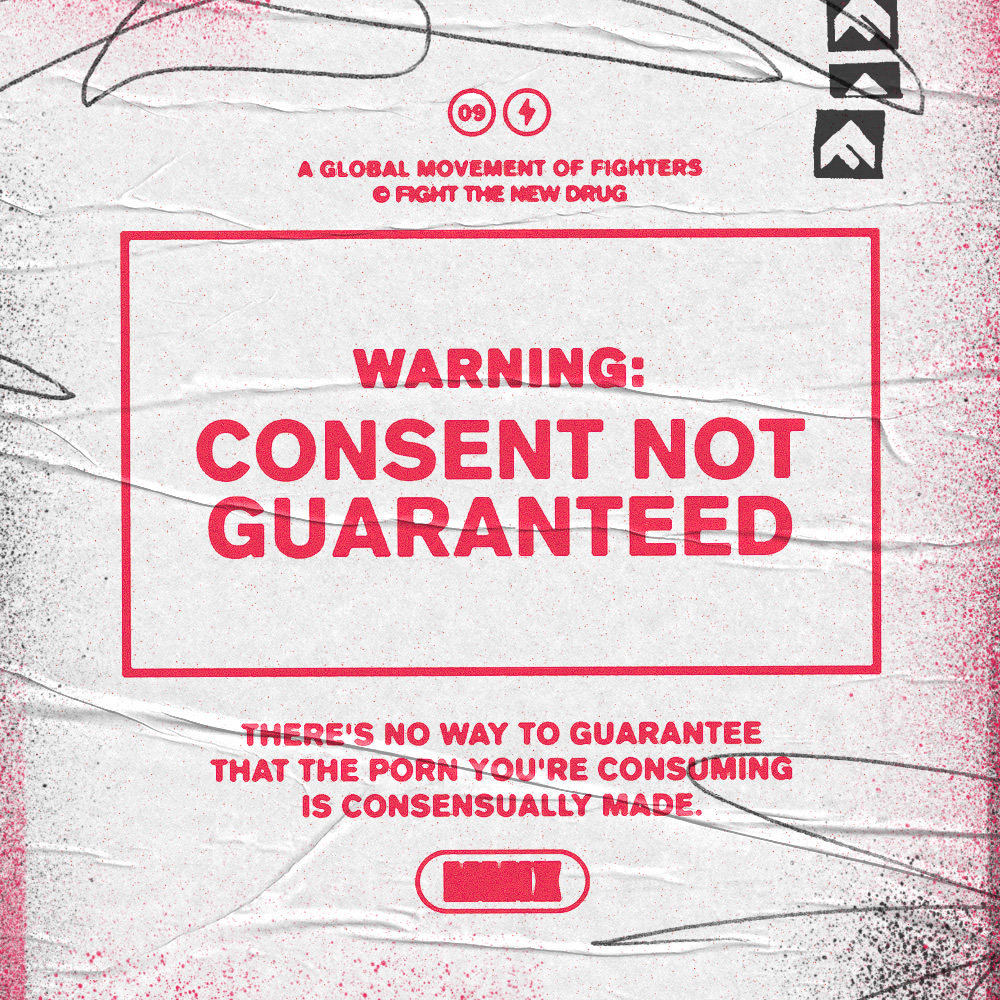During this time of isolation for many across the globe, technology and the ubiquity of the internet have made it possible for many adults to work from home and kids to do their schooling online. Unfortunately, with an increase in time spent on the internet at home, the world is also seeing an increase in the consumption of pornography.
And some porn companies are taking advantage of that, exploiting the isolation, anxiety, and boredom of billions for their own profit.
People around the world woke up to this news, tweeted from Pornhub late last night:
“Stay home and help flatten the curve! Since COVID-19 continues to impact us all, Pornhub has decided to extend Free Pornhub Premium worldwide until April 23rd. So enjoy, stay home, and stay safe.”
First, it was Italy that got free Pornhub Premium, then Spain, then France as lockdown orders went global. In the announcements for these 3 countries, though, they mentioned they’re donating a percentage all of its proceeds from Modelhub—a subsidiary that helps creators sell content—to local hospitals. It doesn’t look like that’s the case for the most recent worldwide announcement above.
Still, all of this points to the fact that Pornhub is in desperate need of some positive publicity after multiple cases have recently come to light of abuse victims, rape victims, and sex trafficking victims whose filmed exploitation was found on the site.
The irony is not lost on us of a porn site offering incomprehensible amounts of free porn to people who are stuck inside because of a global health crisis. Here’s what we mean.
A public health issue and a public health crisis
It may seem like no big deal—passing the time with porn is just a way for healthy and unhealthy people alike to have some fun and stay occupied while they are quarantined, right?
Well, it’s actually not that simple.
The problem is this: porn hurts people—it doesn’t help them—and has well-documented harmful effects, including being inextricably tied to sex trafficking. Pornhub responding to the coronavirus public health crisis by encouraging and supplying access to another public health concern is ironic, right?
And here’s the kicker: research shows that porn actually fuels boredom, isolation, and depression—which are the last things anyone who is stuck in isolation needs more of, whether they are healthy or not. And aside from that, there are many more ways that porn is harmful and unhealthy for consumers.
But are we being dramatic in calling porn a public health issue? Isn’t that taking it a bit too far? Sure, there are some things about porn that aren’t so great, but can we truly compare it to a near pandemic disease? Well, not exactly, but there are some very real harms that are worth considering.
Science-backed proof that porn is a public health issue
Though consuming porn isn’t deadly like coronavirus is, research suggests that porn isn’t as harmless as it’s often claimed to be. Take a look at some of the things that make porn destructive to consumers, relationships, and our society.
Related: Why Is Porn Being Considered A Public Health Concern?
1. Porn harms mental health.
Here’s a compilation of 29 peer-reviewed, scientific studies that looked into porn’s effects on a consumer’s brain. The research is astounding, and new studies come out every year that further corroborate these findings.
Experts have found that porn consumption can have a highly addictive impact on the brain. It hijacks the brain like a drug, leading a consumer’s brain to need it more and enjoy it less. It can rewire the brain’s neurological pathways so that a consumer craves more and more extreme genres of porn in order to feel dopamine-induced satisfaction. It can also desensitize the brain to ideas and behaviors previously considered appalling.
Porn consumption has been shown to possibly interfere with the brain’s working memory performance. It can be linked to an overactive stress system. It can cause an increase in feelings of tiredness, depression, and moodiness. (Do those things sound like something you want to happen during extended times of isolation?)
We could go on and on. Researchers learn more about porn’s harms to the individual all the time, and the overall majority of the findings aren’t encouraging when it comes to the overall health and well-being of a consumer.
2. Porn harms sexual health.
Popular culture might suggest that porn helps your sex game, but research shows the opposite.
Related: 5 Ways Your Porn Habit May Be Harming Your Mental Health
Studies show that porn consumption can lead to more sexually risky behavior, sex with multiple partners, paid sex, and more casual sex—all of which increase the likelihood of getting STDs and STIs. Those who consume porn are also more likely to hook up while intoxicated and/or without using protection. Porn is also linked to the startling rise in rates of erectile dysfunction, even among otherwise healthy young men.
Porn is also at least partly responsible for spreading misinformation about sex and the importance of consent in safe, healthy sexual encounters.
Related: TEDx Talk—Why This Sex Therapist Wants Parents to Talk About Porn
And what’s more? Heavy porn consumers are sometimes significantly less likely to desire sex with their real partners, potentially leading to broken relationships, divorce, and overall unhappiness.
3. Porn harms relational health.
As we just noted, porn can harm relationships by making in-person sex less desirable than that addictive, extreme, porn-induced rush.
Research also shows that porn leaves consumers lonelier and more isolated than before, leading them to withdraw emotionally from people in their lives, which has obvious negative overall health effects. Studies show time and time again how partners of porn consumers are more likely to feel angry, hurt, bitter, distant, confused, rejected, and betrayed than partners of non-porn users.
Porn consumers can also be less relationally committed overall, more callous toward (especially) females in general, and more likely to cheat on their partners. Of course, all of this highly depends on the individual, though it’s worth knowing what the research says.
4. Porn harms societal health.
On a global scale, porn is truly a toxic societal concern. Studies show the deep intrinsic link between the porn industry and the human trafficking industry and sexual exploitation.
We are not claiming that all porn is nonconsensual, but rather, raising awareness that there is often no way to tell if the porn a consumer views is completely consensual or produced with coercion.
Just read this Jezebel.com story, this story on Daily Beast, this story on Complex.com, this Rolling Stone story, this Daily Beast story, this Bustle.com story, this story on CNN, this NY Post story, this Gizmodo.com story, this BBC report, this Florida Sun-Sentinel report, this Daily Wire story, this Buzzfeed News profile, and this UK Independent story for further proof that the mainstream porn industry features nonconsensual videos and videos of trafficked individuals. And yes, this includes videos on Pornhub and other mainstream porn sites.
Related: Porn Industry Officials Call For Productions To Temporarily Shut Down Due To Coronavirus
Those are real-life examples of trafficking and exploitation in the porn industry, but what does the research have to say?
Porn is overwhelmingly full of violent and degrading behavior, especially toward women—and that content often diminishes consumers’ sensitivity to exploitation, abuse, and dehumanization. Porn consumers are more likely to have violent fantasies and more likely to act out those fantasies in their real lives. Porn leads to more violent assaults, fuels a greater acceptance of rape and rape myths, and lessens compassion for assault victims.
Child pornography—which is not rare, due to porn’s escalatory nature—is directly correlated with real-life child abuse by adults. It is also linked to child-on-child sexual assault.
To heal or to make sicker?
The research is overwhelmingly in support of labeling internet porn a public health concern. There is no facet of society exempt from its harmful influences that we know of.
Decades of research from major institutions have shown that porn is harmful to individuals, relationships, and society. And just as society followed science by labeling smoking as a major health concern, so too should we as a modern society acknowledge that porn is problematic.
Related: Why We’re Not Out To Ban Porn
There is a powerful movement happening to recognize porn for what it is, and to fight it. Take activist and researcher Dr. Gail Dines, for example, who speaks publicly on the issue. Dr. Dines is President and CEO of Culture Reframed, an organization that equips parents and adults to understand the hypersexualized porn-impacted culture surrounding kids and teens. Dr. Dines’ work empowers people to overcome porn’s unhealthy effects and build resiliency and knowledge among young generations.
So what’s better? An organization like Culture Reframed offering health, wellness, and empowerment? Or Pornhub offering a major public health issue to potential virus victims?
Related: The Problem With Saying “There Are Bigger Problems Than Porn To Fight”
During this time of global quarantine, consider checking out these 5 things you can do at home that don’t include watching porn.
Consider sharing this article to raise awareness on, as Culture Reframed puts it, an important public health issue of the digital age.





